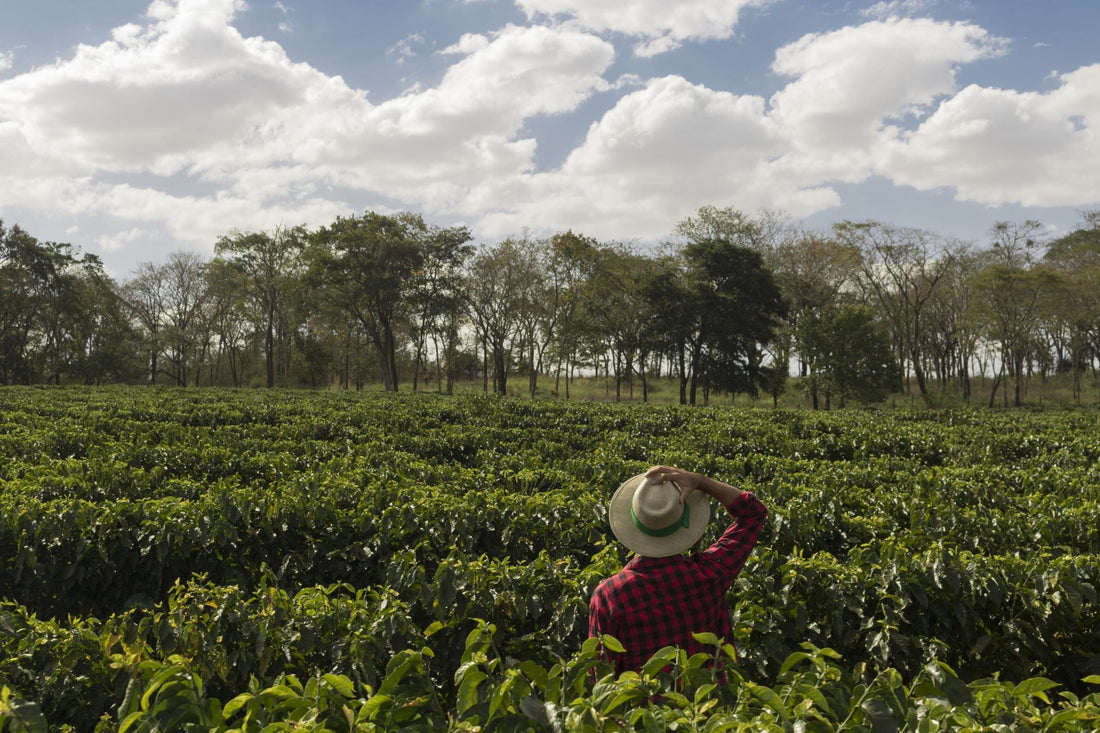When it comes to the world of coffee, tariffs play a significant role in shaping prices and supply. But what exactly are the effects of tariffs on this beloved beverage? Let's delve into the details, and understand more about how tariffs are affecting the number #1 beverage in the world.
How do tariffs affect coffee prices?
Tariffs, which are taxes imposed on imported goods, can have a direct impact on the price of coffee. When a tariff is placed on imported coffee beans, the cost of bringing those beans into the country increases. As a result, coffee roasters and retailers may pass on these additional costs to consumers in the form of higher prices.
What is the impact on coffee supply?
One of the key effects of tariffs on coffee supply is a potential disruption in the market. When tariffs are imposed on coffee imports, it can create barriers for coffee producers in other countries to access certain markets. This can lead to a decrease in the overall supply of coffee available, which may further drive up prices.
How do tariffs influence the coffee industry?
For the coffee industry as a whole, tariffs can create uncertainty and volatility. Fluctuations in prices and supply can make it challenging for businesses to plan for the future and make strategic decisions. Additionally, tariffs can impact trade relationships between coffee-producing countries and importing nations, potentially leading to shifts in global trade dynamics.
What are the long-term implications?
Over the long term, the effects of tariffs on coffee prices and supply can have far-reaching consequences. Higher prices may impact consumer demand for coffee, leading to changes in consumption patterns. Additionally, disruptions in the supply chain can affect the livelihoods of coffee farmers and workers in producing countries, creating economic challenges for these communities.
Tariffs have a significant impact on the coffee industry, influencing prices, supply, and trade relationships. Understanding these effects is crucial for stakeholders in the coffee supply chain to navigate the complexities of the global market and adapt to changing conditions. The White House just released details on a new trade framework with Indonesia. One key takeaway: the U.S. plans to reduce some reciprocal tariffs to 19 percent under Executive Order 14257, issued in April. There’s also a possibility for deeper tariff cuts on goods that aren’t grown or produced in the U.S. Coffee isn’t named directly, but in a CNBC interview, Commerce Secretary Howard Lutnick mentioned coffee, cocoa, mangoes, and pineapples as examples of products that could qualify.
Let's Understand This
* Key observations include new tariffs on the world’s four largest coffee-producing countries by volume of Arabica and Robusta combined: Brazil, Vietnam, Colombia and Indonesia, and these origins are key coffee suppliers to the U.S.
* Tariffs are a tax on U.S. businesses, not foreign producers. These increase the cost of coffee immediately, even for contracts signed before the tariffs were enacted.
* Maintaining operations and continue sourcing the coffees you depend on, these costs must be passed through.
* Tariffs apply to nearly all imported coffees, with few exceptions (primarily certain qualifying Mexican coffees). Tariffs are based on the FOB (free on board) value at U.S. customs, which may have differing daily pricing.
* We do not profit from tariffs; we’ve raised prices to only cover charges that we are required to pay at import.
* New country-specific tariffs take effect August 1, 2025, replacing the 10% baseline for affected origins: Indonesia: 32%, Vietnam: 20%
* Other origins remain at the 10% minimum unless otherwise announced.
* Tariffs apply to coffee that clears U.S. customs on or after August 1, regardless of contract date or shipment booking.
* Any large-scale impact to the Brazilian coffee sector. e.g., a 10% increased cost to U.S. buyers, tends to have further reaching implications on the global market. Brazil remains under close observation. Given recent U.S. statements, it seems unlikely that Brazil’s tariff rate will remain at 10 percent, particularly due to their support of the BRICS group, along with India.
* Neither India nor Nicaragua has had formal announcements yet. In theory, their rates revert to the previously announced higher levels on August 1 (27% and 19% respectively). However, it is almost certain that their final rates will differ from those earlier figures.
* The 46% US tariff imposed on coffee imports from Vietnam, the world’s largest producer of the Robusta coffee variety, dramatically reshaped the Robusta market in the U.S. and globally. However, in July 2025, a trade deal was reached with Vietnam, reducing the tariff to 20% on Vietnamese goods, including coffee, effective August 1st.
* The European Union (20%) and Switzerland (31%), the latter notably added for its prominent place in the global coffee trade due to its corporation-friendly taxation standards and regulations.
* In our opinion, the idea of hoarding a bunch of coffee now at current prices is not worth the possible savings, while missing out on all the new incoming lots as you work through a large supply. We will continue to do everything on our end to maintain the high-quality direct-trade relationships as always, and will continue to price our coffee fairly for you as we have always done. Basically, we are advising you not to binge-buy now, which many businesses really do nothing to discourage. But we think longer terms, and would rather have you as a customer in the future than just think about how we can separate you from your money today.
That's it for now, and thank you for your continued support!
